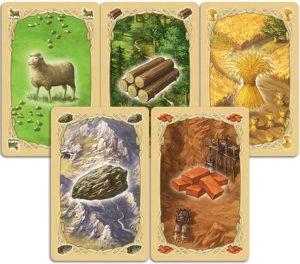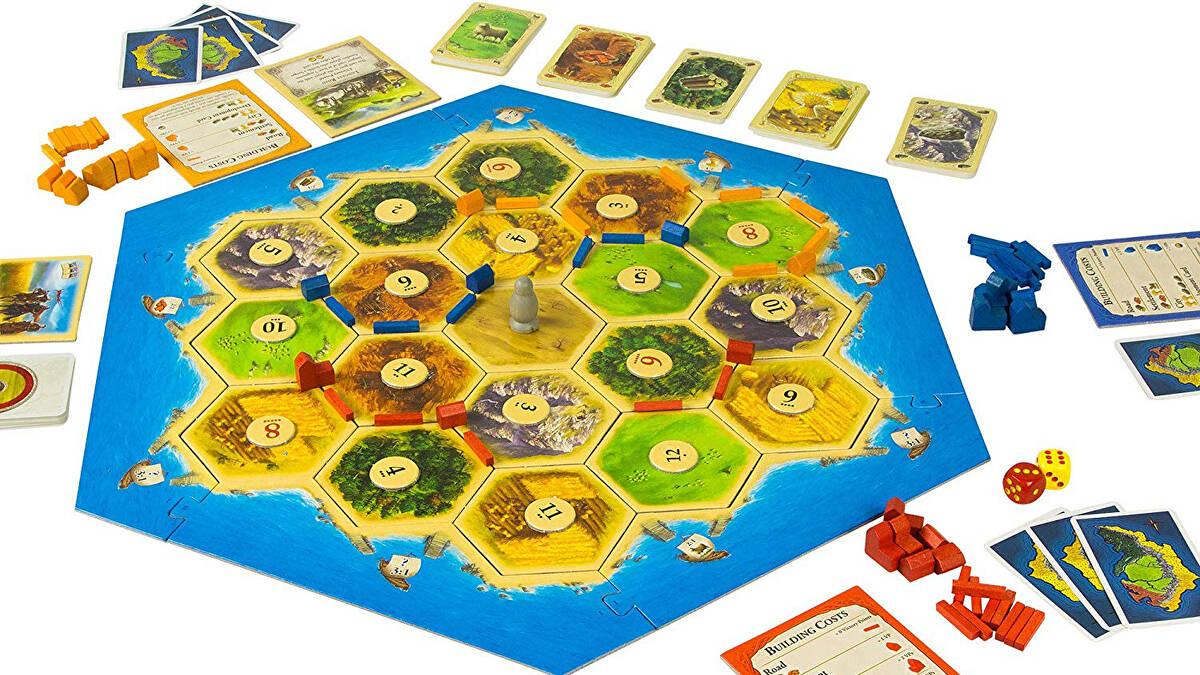For this week’s critical play, I will analyze Settlers of Catan, a game that my family and I played more times than we can count over quarantine and became the activity we most looked forward to every day.
Developer: Klaus Teuber
Target Audience: Catan was designed for ages 10+, and it is a game that would be entertaining for any group of friends, families and even complete strangers.
Objective: to be the first player to collect 10 victory points. These are gained by building settlements (1 point), cities (2 points), obtaining the longest road (2 points) or the largest army (2 points), or simply by buying development cards that can either give you a “power’ or 1 victory point.
Main types of Fun
Fellowship: one of the most important types of fun that this game offers is that of fellowship. Most strategies the players can use to win the game involve negotiating with other players to get the resources they need or teaming up to stop the player who is closer to reaching 10 points from winning. This makes it a fun game to play with family and friends as you interact, cooperate or compete at different stages of gameplay.
Challenge: the challenge emerges from the competition with other players who can form alliances and use a variety of different strategies to win the game. Since all the players are in a pretty even laying field, it becomes challenging to set yourself apart from other players and win the race towards collecting 10 victory points
Balance in asymmetric games
In the first round of the game players roll the die to determine the order in which players will place their first settlements. These settlements will be their main source of resources as they start the game. Because of this, it is inevitable that since the start of the game there are players that are better set up for success than others. In some cases, it can even mean that it is almost impossible for a player to win after this first round of placing settlements, in which case the game becomes very imbalanced and loses its usual appeal. However, in most cases the game effectively increases balance by ensuring that the player that places their first settlement first, is the last player to place their second settlement by reversing the order determined by chance for the second round of placing settlements. The option to trade resources also increases balance as it doesn’t limit players to the resources that they have access to from their initial settlements.
Balance in strategies
One of Catan’s major strengths is the balance in possible strategies, as there are many different ways to win the game, all of which are relatively similar in difficulty and in effectiveness. To win the game, a layer must collect 10 victory points. However, there are many ways to do this. One possibility is to earn points by building settlements and cities, but it is also possible to gain points by forming the largest army, the longest road, or purchasing development cards that give the player victory points or give them other advantages in gameplay. There is balance in the way that chance plays a role in these strategies and in the way that competition for the same strategy naturally increases as the randomness involved in the strategy decreases.
Balance in objects

In order to build settlements, cities, roads and purchase development cards, the players rely on 5 resources (wood, wheat, brick, ore and sheep). These have a transitive relationship in the sense that different combinations of these are used to build different things, and I would say there isn’t one resource that is always most important than the others. They are all useful in relatively similar quantities and they are all necessary to win. However, I would say Catan also uses an intransitive relationship to balance the game objects, as different resources become more important at different stages of the game, depending on what the players are trying to build. The importance of resources varies with chance too, as a resource can become more scarce or more easily attainable depending o the roll of the dice. Because of this, the game is well balanced as there is no one recourse that is inherently most important, scarce or sought after by the players.
Overall, Catan is one of my favorite board games, but if I could change one thing, I would decrease the role that chance plays in the game when players place their initial settlements. Once players are very good, it becomes very hard to come back from a bad initial set up and it’s easy to lose motivation to play.



